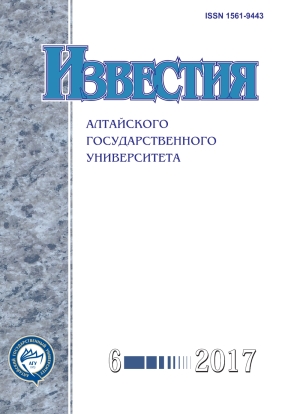On Forensic Maintenance of Investigation of Crimes in Conditions of Active Repentance
Abstract
The institution of active repentance as an important tool for achieving the goals of punishment and criminal legal proceedings is advisable to consider not only from the standpoint of the implementation of the norms of criminal and criminal procedure legislation, but also of the use of appropriate forensic techniques, resorts and methods directed at the solving and investigation of the crime. The suspects or the accused of committing crimes, giving confessions, often declare their wish to repent actively. This circumstance makes it possible to conduct an investigation efficiently, economically and shortly. The forensic scientists do not pay enough attention to the issues of the detection and investigation of crimes in conditions of active repentance in spite of existing problems of forensic nature. The authors denote the circumstances to be determined and single out the stages of active repentance from the point of view of obtaining of criminally significant information. The attention is paid to the questionable issues of the organizing and conducting of separate investigative actions for cases of this category.
DOI 10.14258/izvasu(2017)6-16
Downloads
Metrics
References
Савкин А.В. Деятельное раскаяние в преступлении: правовые и криминалистические проблемы : дис. ... д-ра юрид. наук. — М., 2002.
Щерба С.П., Савкин А.В. Деятельное раскаяние в совершенном преступлении : практ. пособие. М., 1997.
Гавло В.К. Теоретические проблемы и практика применения методики расследования отдельных видов преступлений. — Томск, 1985.
Гавло В.К., Клочко В.Е., Ким Д.В. Судебно-следственные ситуации: психолого-криминалистические аспекты : моногр. — Барнаул, 2006.
Каминский А.М. Теоретические основы криминалистического анализа организованной преступной деятельности и возможности его практического использования : автореф. дис. ... д-ра. юрид. наук. — Н. Новгород, 2008.
Васильев А.Н. Введение в курс советской криминалистики : лекция. — М., 1962.
Грачев С.А. Процессуальные проблемы реализации права на деятельное раскаяние в ходе досудебного производства // Юридическая наука и практика: Вестник Нижегородской академии МВД России. — 2016. — № 2 (34).
Касаткина С.А. Признание обвиняемого : моногр. [Электронный ресурс]. — URL: http: // http://www.consultant.ru/cons/ cgi/online.cgi?base=CMB&n=16411&req=doc#0 — 2010.
Соловьева Н.А. Психологические основы допроса лиц, признающих свою вину в совершении преступления // Вестник Волгоградского государственного университета. — 2010. — Вып. 1.
Белкин Р.С. Курс криминалистики : учеб. пособие для вузов. — М., 2001.
Бердникова О.П. Тактика проведения очной ставки при расследовании грабежей и разбоев, совершенных организованными группами // Вестник Уральского юридического института МВД России. — 2016. — Вып. 3.
Copyright (c) 2017 В.В. Ерахмилевич, Д.А. Казанцев

This work is licensed under a Creative Commons Attribution 4.0 International License.
Izvestiya of Altai State University is a golden publisher, as we allow self-archiving, but most importantly we are fully transparent about your rights.
Authors may present and discuss their findings ahead of publication: at biological or scientific conferences, on preprint servers, in public databases, and in blogs, wikis, tweets, and other informal communication channels.
Izvestiya of Altai State University allows authors to deposit manuscripts (currently under review or those for intended submission to Izvestiya of Altai State University) in non-commercial, pre-print servers such as ArXiv.
Authors who publish with this journal agree to the following terms:
- Authors retain copyright and grant the journal right of first publication with the work simultaneously licensed under a Creative Commons Attribution License (CC BY 4.0) that allows others to share the work with an acknowledgement of the work's authorship and initial publication in this journal.
- Authors are able to enter into separate, additional contractual arrangements for the non-exclusive distribution of the journal's published version of the work (e.g., post it to an institutional repository or publish it in a book), with an acknowledgement of its initial publication in this journal.
- Authors are permitted and encouraged to post their work online (e.g., in institutional repositories or on their website) prior to and during the submission process, as it can lead to productive exchanges, as well as earlier and greater citation of published work (See The Effect of Open Access).








